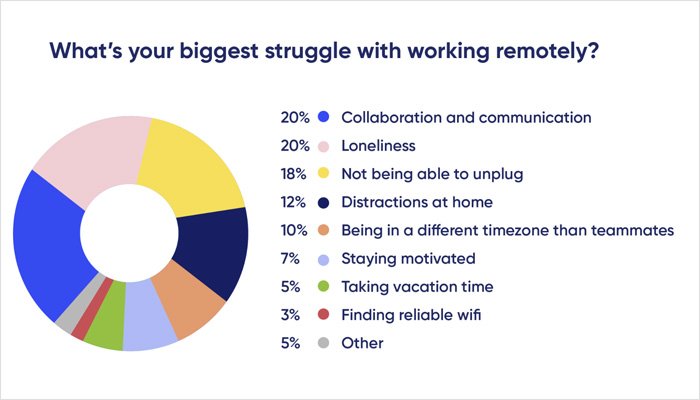Unraveling the Intricacies of Remote Work and Recruiting: Complications and Tactics

The unprecedented COVID-19 pandemic has revolutionized the workplace, hastening the trend of remote work and compelling companies to adapt to a virtual environment. While remote work provides numerous advantages, including flexibility, cost savings, and enhanced productivity, it also poses significant hurdles for organizations striving to recruit, retain, and oversee their talent. In this article, we will scrutinize the intricacies inherent in remote work and recruiting and provide tactics for organizations to traverse these obstacles.
The Complications of Remote Work

Remote work presents inimitable hurdles for both employees and employers. One of the most notable complications is upholding communication and collaboration. In a virtual environment, communication and collaboration can become more arduous, resulting in misinterpretations, delays, and a lack of engagement. Furthermore, remote work can blur the boundaries between work and personal life, leading to burnout and anxiety.
Another hindrance of remote work is the absence of face-to-face interaction, which can curtail opportunities for relationship building and social connections. This can make it problematic for employees to feel affiliated with their colleagues and the organization as a whole, which can result in detachment and attrition.
The Complications of Remote Recruiting
Remote recruiting presents supplementary challenges for organizations striving to lure and recruit top talent. One of the most prominent challenges is the absence of in-person interactions, which can make it more challenging to evaluate candidates’ cultural fit, communication skills, and other elusive qualities that are critical for success in a remote work environment. Furthermore, remote recruiting can make it harder to stand out in a saturated job market, as candidates have more options and may be less willing to relocate for a job.
Another hurdle of remote recruiting is the augmented competition for talent. With remote work, organizations can widen their pool of candidates beyond their local area, leading to more competition for top talent. This can make it more difficult to attract and retain the best candidates, as they may have more options and may not be as committed to a specific location.
Tactics for Traversing Remote Work
Despite the complications of remote work, there are tactics that organizations can utilize to alleviate these challenges and establish a prosperous virtual work environment. One of the most crucial tactics is to establish unambiguous communication and collaboration protocols. This can include defining expectations for communication channels, response times, and meeting schedules. Additionally, organizations should furnish training and resources for remote collaboration tools, such as video conferencing, instant messaging, and project management software.
Another fundamental tactic for traversing remote work is to prioritize employee well-being and work-life balance. This can include encouraging employees to take breaks, setting boundaries for work hours, and providing resources for mental health and stress management. Furthermore, organizations can promote social connections and team building by hosting virtual events, such as virtual happy hours, game nights, or team challenges.
Tactics for Traversing Remote Recruiting

To traverse the complexities of remote recruiting, organizations should adopt a comprehensive recruitment strategy that encompasses multiple channels and approaches. One of the most effective tactics is to leverage technology to enhance the recruiting process, such as using video interviews, virtual job fairs, and online assessments. This can help to streamline the recruiting process, improve the candidate experience, and reduce the time and costs associated with in-person recruiting.
Another critical tactic for traversing remote recruiting is to prioritize employer branding and visibility. This can include creating compelling job descriptions, highlighting the organization’s mission and values, and showcasing the benefits and opportunities of working for the organization. Furthermore, organizations can leverage social media and other digital channels to augment their reach and engagement with potential candidates.
Characteristics Employers Should Look for in Remote Job Candidates

When hiring remote employees, there are certain attributes that employers should look for in order to ensure the best possible outcome.
The advantages of working remotely include:
- Solid communication abilities. To succeed in a remote position, an individual must have great communication skills. Both vocally and in writing, they must be able to clearly and effectively communicate their thoughts, feelings, and intentions to others. Additionally, they must be able to comprehend other people’s writing and vocal conversations well. Strong listening abilities are also a must for good remote workers. Being able to actively listen and understand what is being said as opposed to passively waiting for their turn to speak is one aspect of this.
- Self-management and time management abilities. Since they won’t have anyone else monitoring their time, remote workers must learn to manage their time effectively. They must be able to prioritize their own duties in order to meet due dates. They should be self-driven and able to operate well independently. technical expertise. The technological parts of remote work, such as using project management software, video conferencing software, and other digital communication platforms, should be well understood by remote employees. In order to properly use computer hardware and software, they should also have a basic understanding of both.
- Technical expertise. Technical expertise is necessary for remote work since it makes it possible for people to communicate with one another and more effectively coordinate duties. Remote workers can collaborate on projects, share data and papers, and communicate with their coworkers with the proper technical skills. They also make it possible for team members to communicate despite distance. For remote workers to ensure that their work is up to standard and can be completed effectively, having good technical abilities is essential.
- Flexibility. Flexibility, or the capacity to swiftly and readily change course in response to changing demands or tasks, is another crucial trait of remote employees. Remote workers should be flexible, quick on their feet, and able to troubleshoot when necessary.
abilities to solve problems. Employers should seek applicants with solid problem-solving abilities who can stay upbeat and productive despite trying circumstances. Remote employment can provide its own set of difficulties, necessitating the capacity for problem-solving without direct supervision. - Attention to detail and organizational abilities. For remote workers, paying attention to detail is crucial since it guarantees that jobs are executed correctly, effectively, and on schedule. Additionally, being organized makes it easier for remote employees to remain on top of their workload and utilize their time wisely.
- Trustworthiness. Employers should also search for dependable and trustworthy remote workers. In addition to being able to work independently, commit to achieving deadlines without direct supervision, and adhere to company regulations, remote workers must also be able to follow instructions.
How to Know if Remote Job Candidates are Right for You?
When hiring remote employees, discerning whether job applicants are an apt fit for the role is paramount. To this end, gauging if a candidate possesses the requisite skills and attributes to excel in remote work is critical for employers to optimize their staffing choices.
The optimal approach for ascertaining a remote job seeker’s suitability is to seek out pivotal traits, such as robust communication, dexterous time and self-management, technological expertise, suppleness, adeptness at troubleshooting, sound organizational acumen, meticulousness, and dependability. By meticulously evaluating candidates against these benchmarks, employers can rest assured that they are appointing the finest talent for the job.
Conclusion
In conclusion, remote work and remote recruiting present unique challenges for organizations. However, with the right tools and tactics in place, these challenges can be navigated to foster a successful remote working environment and attract top talent. Remote work offers great opportunities for both employers and employees alike, making it a viable option for the future of work. With the proper preparation and implementation, organizations can leverage remote work to gain a competitive edge in the job market.
- Mastering Internal Mobility: A Comprehensive Guide to Success - August 10, 2023
- Effective Recruiting Strategies in a Competitive Sales Labor Market - July 27, 2023
- 6 Essential Factors to Attract Top Talent - July 19, 2023
